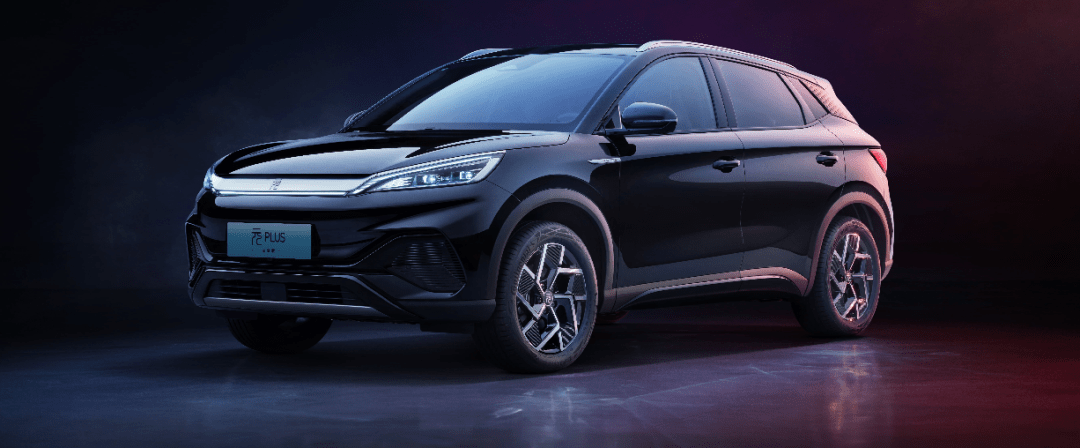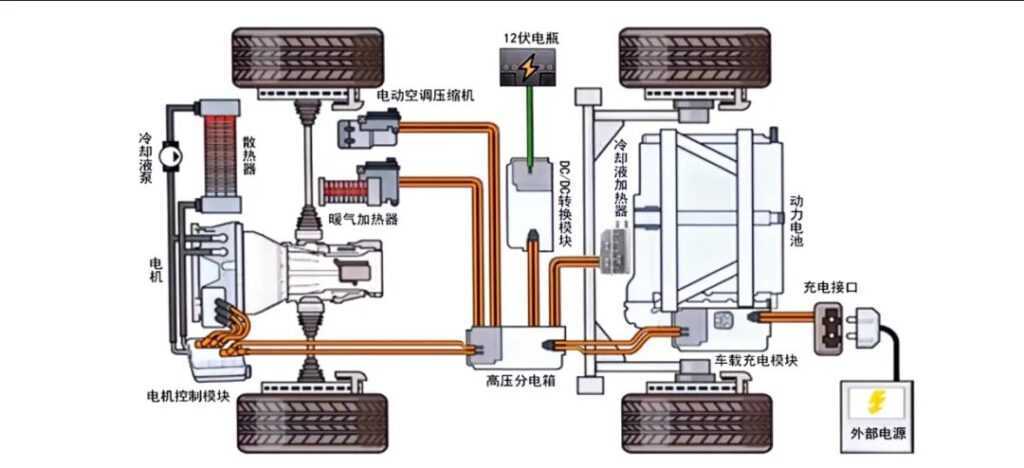The automotive industry is currently undergoing a profound transformation, driven largely by the increasing demand for electric vehicles (EVs). This transition is not only reshaping the vehicles we drive but also revolutionizing the manufacturing processes behind them. Central to this shift is the integration of advanced technologies, particularly Computer Numerical Control (CNC) machining Industry. This article delves into how CNC technology is fueling the rise of electric vehicles by enhancing production efficiency, improving precision, fostering innovation, and contributing to sustainability.
The Electric Vehicle Revolution
The push toward electric vehicles is being driven by a combination of environmental awareness, technological advancements, and regulatory pressures. Governments worldwide are implementing stricter emissions regulations, incentivizing the adoption of electric vehicles to combat climate change. As battery technology continues to improve, making EVs more accessible and practical, consumer interest is also surging. This burgeoning market presents both opportunities and challenges for manufacturers, who must innovate rapidly to meet changing consumer demands while maintaining competitive pricing.
CNC Technology: A Catalyst for Change
CNC technology has become a game changer in the automotive industry, offering manufacturers the tools they need to enhance efficiency and precision in the production of electric vehicles. CNC machining allows for the automated control of machining tools via computer programs, enabling the production of complex components with a high degree of accuracy. This capability is especially critical in the EV sector, where performance and reliability are essential.
Precision Manufacturing
One of the most significant advantages of CNC machining is its ability to produce parts with extraordinary precision. Electric vehicles require complex components such as battery packs, electric motors, and lightweight structural elements, all of which demand strict tolerances. CNC machines can achieve these tolerances consistently, ensuring that each component fits perfectly within the assembly and operates optimally. This level of precision is crucial for enhancing the overall performance and reliability of electric vehicles, making CNC technology indispensable in their production.
Increased Efficiency
The automotive industry is characterized by high competition and a relentless drive to reduce time-to-market. CNC machining significantly accelerates production times compared to traditional manual machining methods. With CNC technology, manufacturers can automate the production process, allowing machines to operate continuously without the need for human intervention. This results in a higher output of components in a shorter time frame, enabling manufacturers to respond quickly to market demands. Additionally, the reduction in manual labor and human error contributes to greater efficiency and cost-effectiveness in the production process.
Material Versatility and Lightweighting
Electric vehicles often rely on lightweight materials, such as aluminum, carbon fiber, and advanced composites, to improve energy efficiency and extend range. CNC technology excels at machining these materials, allowing manufacturers to create complex geometries and lightweight structures without compromising strength or durability. For instance, intricate battery enclosures can be machined to precise specifications, maximizing space while minimizing weight. This capability not only enhances the performance of electric vehicles but also aligns with the industry’s goal of producing more sustainable and energy-efficient vehicles.

Sustainability in Manufacturing
Sustainability is a key focus for the automotive industry, especially with the rise of electric vehicles designed to reduce carbon emissions. CNC machining supports these sustainability efforts in several ways. First, CNC processes typically generate less waste compared to traditional machining methods. The precision of CNC technology ensures that materials are utilized efficiently, minimizing scrap. Additionally, the ability to create components with high accuracy reduces the need for secondary operations, further decreasing material waste. As manufacturers strive to adopt eco-friendly practices, CNC technology plays a vital role in facilitating sustainable production.
Driving Innovation in Design and Prototyping
CNC technology is not just about manufacturing; it also plays a crucial role in the design and prototyping phases of electric vehicle development. Advanced software tools enable engineers and designers to create intricate designs and simulations before any physical production takes place. This allows for rapid prototyping, where ideas can be tested and refined quickly. The agility offered by CNC technology means that manufacturers can iterate on designs based on performance data, customer feedback, and market trends, ultimately leading to more innovative and effective electric vehicles.
Rapid Prototyping
The traditional process of prototyping can be time-consuming and costly, often requiring multiple iterations to achieve the desired result. CNC machining streamlines this process by enabling quick adjustments to designs. Engineers can create prototypes that closely mimic the final product, allowing for thorough testing and evaluation before mass production begins. This rapid prototyping capability is invaluable in the fast-paced electric vehicle market, where time and innovation are critical for success.
Collaborative Design Processes
CNC technology facilitates collaboration among design teams by enabling them to share digital files and work together on virtual models. This collaborative approach fosters creativity and innovation, as teams can explore a wider range of design options and quickly implement changes. The use of CNC machines to produce prototypes based on these designs ensures that teams can test their ideas effectively, leading to more refined and innovative electric vehicle designs.
Challenges and Solutions
While CNC technology offers significant advantages in the production of electric vehicles, it is not without challenges. The high initial investment in CNC machinery and technology can be a barrier for some manufacturers. Additionally, the need for skilled operators who can program and maintain CNC machines is essential for maximizing their potential.
Addressing the Investment Barrier
To mitigate the financial burden of acquiring CNC technology, manufacturers can explore leasing options or partnerships with CNC service providers. Collaborative efforts can also enable smaller manufacturers to access advanced machining capabilities without the need for substantial upfront investment.
Training and Workforce Development
The successful implementation of CNC technology requires a skilled workforce capable of operating and maintaining advanced machinery. Manufacturers can invest in training programs and apprenticeships to develop the necessary skills within their workforce. Collaborating with educational institutions to create tailored training programs can help ensure that workers are equipped with the skills needed to thrive in a technology-driven manufacturing environment.
The Future of Electric Vehicles and CNC Technology
The electric vehicle (EV) industry is experiencing unprecedented growth, with advancements in technology, shifting consumer preferences, and environmental policies driving the transition toward sustainable mobility. In parallel, CNC (Computer Numerical Control) technology is evolving to meet the needs of modern manufacturing. As EVs demand increasingly complex, lightweight, and precise components, CNC technology will continue to play a critical role in shaping the future of transportation. This article explores the synergies between EV manufacturing and CNC technology, future trends, and how they will reshape the industry.
The Role of CNC Technology in EV Manufacturing
CNC technology offers unmatched precision, flexibility, and efficiency—qualities essential for producing the intricate components of electric vehicles. Critical parts such as electric motor housings, battery enclosures, suspension systems, and cooling systems rely on CNC machining for their high-precision requirements. As automotive designs become more intricate, an advanced machine tool is called a five-axis CNC machine provide manufacturers the capability to produce complex geometries with micron-level tolerances.
CNC machining also offers the flexibility to quickly adapt to new designs, making it ideal for EV startups and established companies alike as they iterate and improve their products. Unlike traditional manufacturing techniques, CNC technology enables manufacturers to switch between prototypes and production runs with minimal downtime, providing the agility required in the rapidly evolving EV market.
Emerging Trends in CNC and EV Integration
Lightweight Materials and Multi-Material Machining:As EV manufacturers strive to reduce vehicle weight to enhance range and performance, they increasingly rely on materials like aluminum, titanium, carbon fiber, and composites. CNC technology must keep pace by offering advanced tooling and cutting strategies to machine these materials efficiently. Future CNC machines will incorporate adaptive feeds and speeds to minimize material waste and tool wear, while mixed-material machining systems will allow for seamless transitions between metals and non-metals.
Automation and Smart Manufacturing:Automation will become a cornerstone of CNC-augmented EV manufacturing. Robotic arms, conveyors, and automated tool changers will work alongside CNC machines to create autonomous production lines. With the help of IoT (Internet of Things) sensors, predictive maintenance systems will ensure that machines operate smoothly with minimal downtime. Smart factories driven by AI will further optimize CNC operations by adjusting machining parameters in real time based on data from sensors and production systems.
Additive and Hybrid Manufacturing:Hybrid manufacturing—combining CNC machining with 3D printing—will transform how EV components are designed and produced. This approach enables manufacturers to build intricate structures using additive processes and then finish them with CNC machining to achieve high precision. This trend will streamline production and reduce material waste while opening new possibilities for lightweight component design.
Battery and Powertrain Advancements:Future EVs will require more efficient batteries and motors, placing new demands on CNC machining. Advanced battery modules with complex cooling channels and intricate housing structures will require precise machining to ensure safety and performance. CNC systems will play a critical role in producing next-generation motors with tighter tolerances, improving their energy efficiency. Additionally, the rise of solid-state batteries and other new technologies will demand further innovations in CNC techniques to machine unconventional materials and components.
Sustainability and Green Manufacturing:Sustainability will remain a top priority for both the EV industry and manufacturing sectors. CNC technology is evolving toward more sustainable practices, with innovations such as energy-efficient machines and recycling programs for metal waste and cutting fluids. As CNC machines become more energy-efficient, manufacturers will adopt eco-friendly practices to reduce carbon footprints. Additionally, digital twin technology will allow manufacturers to simulate machining processes, minimizing waste and energy use during the development phase.
The future of electric vehicles and CNC technology is one of deep integration and mutual advancement. As EVs evolve, the demand for more complex, efficient, and lightweight components will push CNC technology to new heights. Advanced automation, hybrid manufacturing, smart factories, and sustainability will define the future of this symbiotic relationship.
Together, CNC technology and electric vehicles will shape a new era of automotive manufacturing, characterized by precision, agility, and environmental responsibility. As these two industries converge, the result will be a transportation ecosystem that is not only smarter and more efficient but also greener, paving the way for a sustainable future.
Conclusion
The rise of electric vehicles marks a significant turning point in the automotive industry, driven by innovation and technological advancements. CNC technology stands at the forefront of this transformation, enabling manufacturers to produce high-quality, precise components efficiently and sustainably. As the industry continues to evolve, the synergy between CNC machining and electric vehicle production will play a pivotal role in shaping the future of transportation. The ability to innovate rapidly, maintain precision, and reduce environmental impact will ensure that electric vehicles not only meet the demands of today’s consumers but also pave the way for a sustainable and efficient automotive landscape for generations to come.
The journey toward a future dominated by electric vehicles is an exciting one, and CNC technology will undoubtedly be a key driver in realizing this vision. As manufacturers continue to harness the power of CNC machining, the possibilities for innovation and growth in the electric vehicle sector are boundless.

